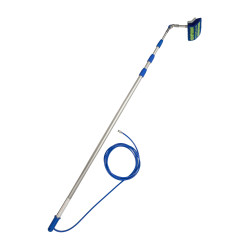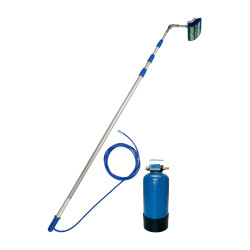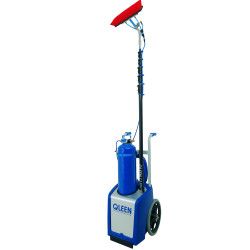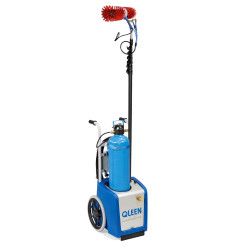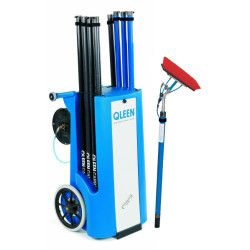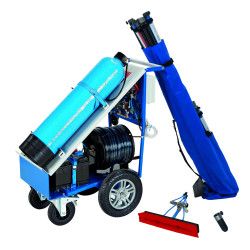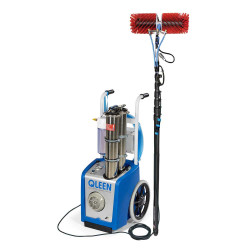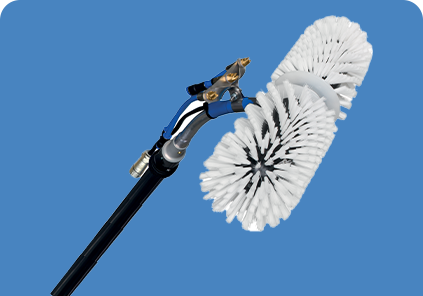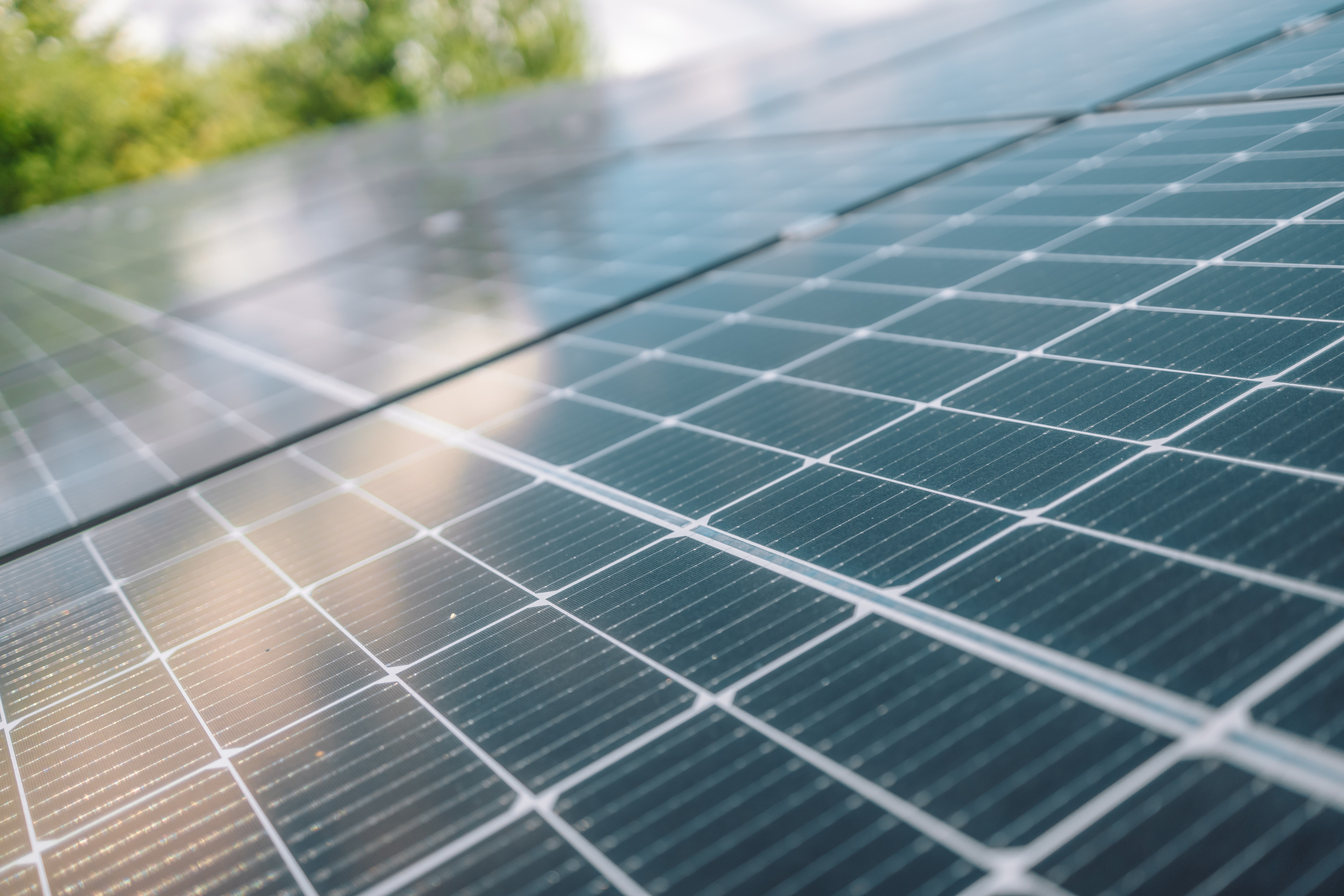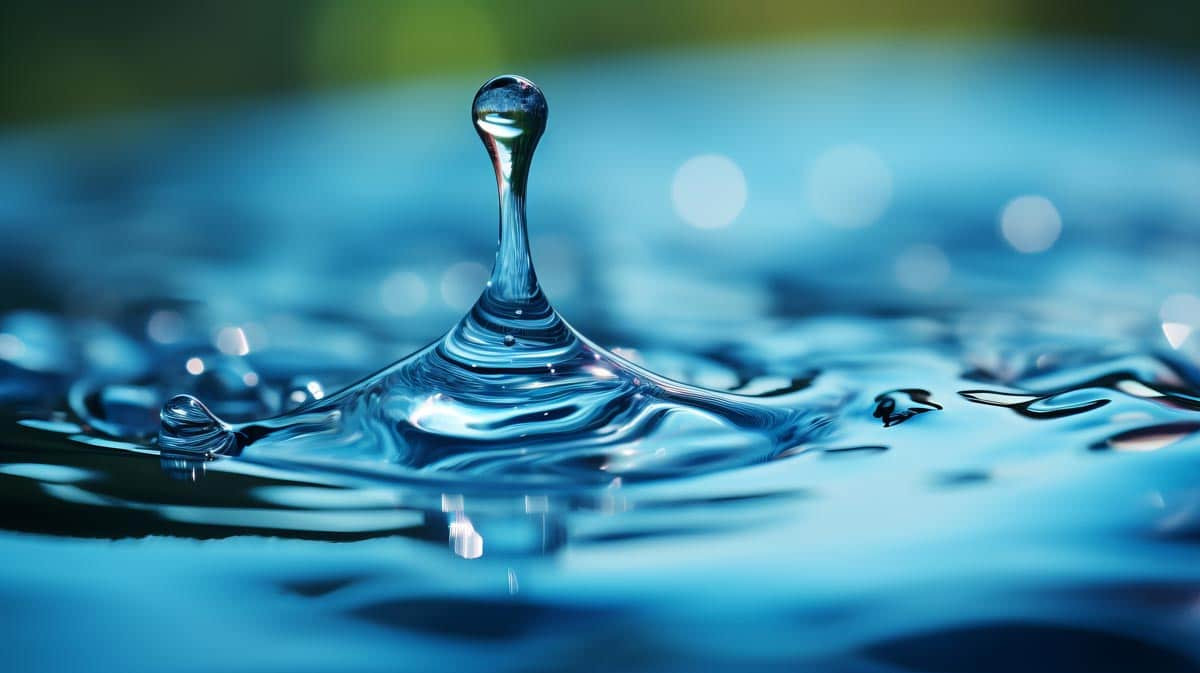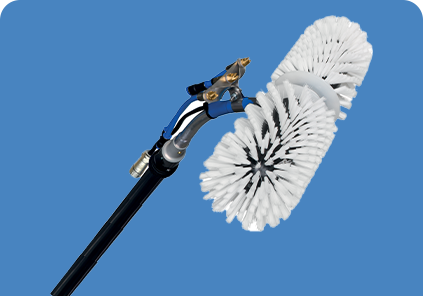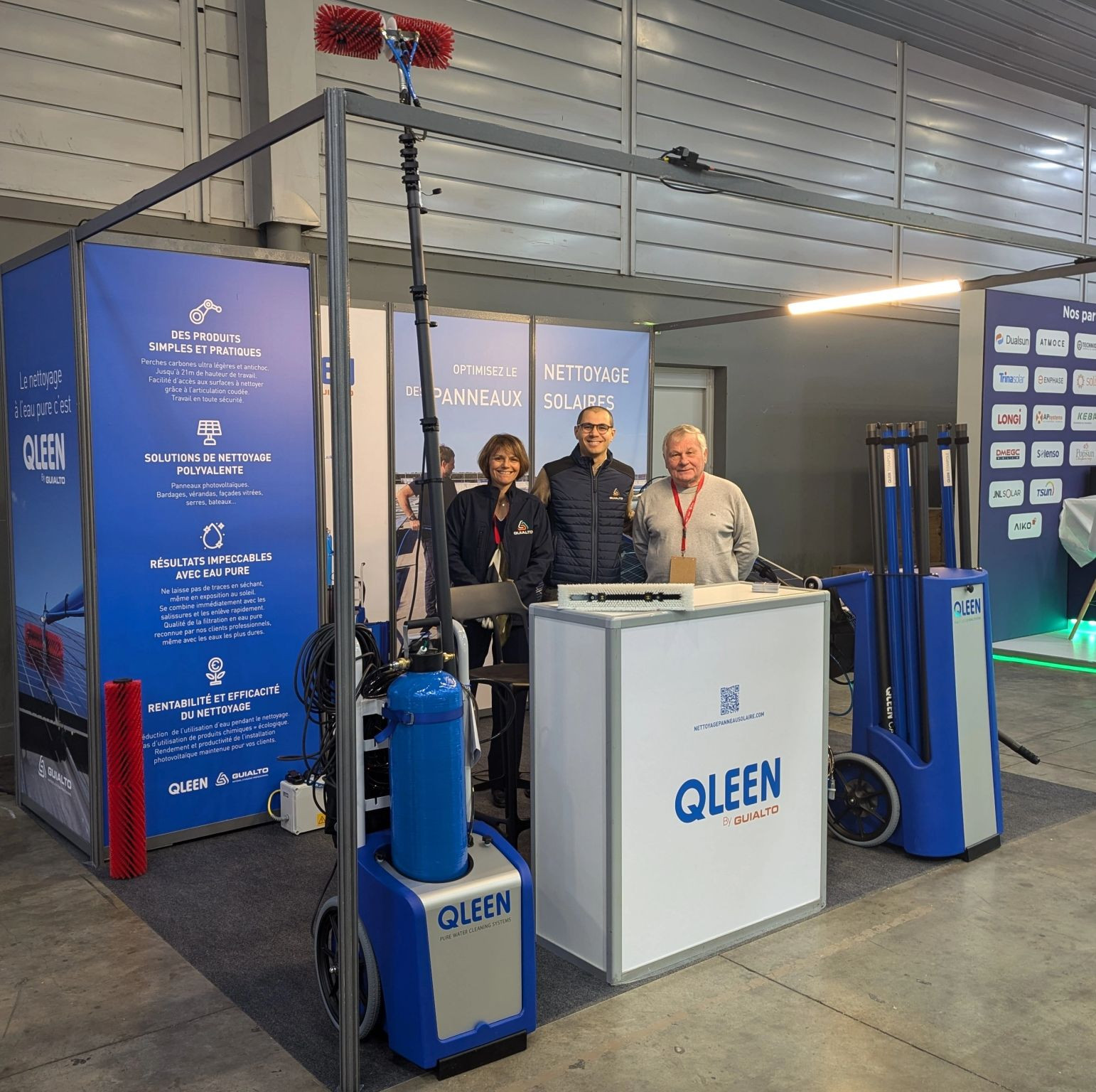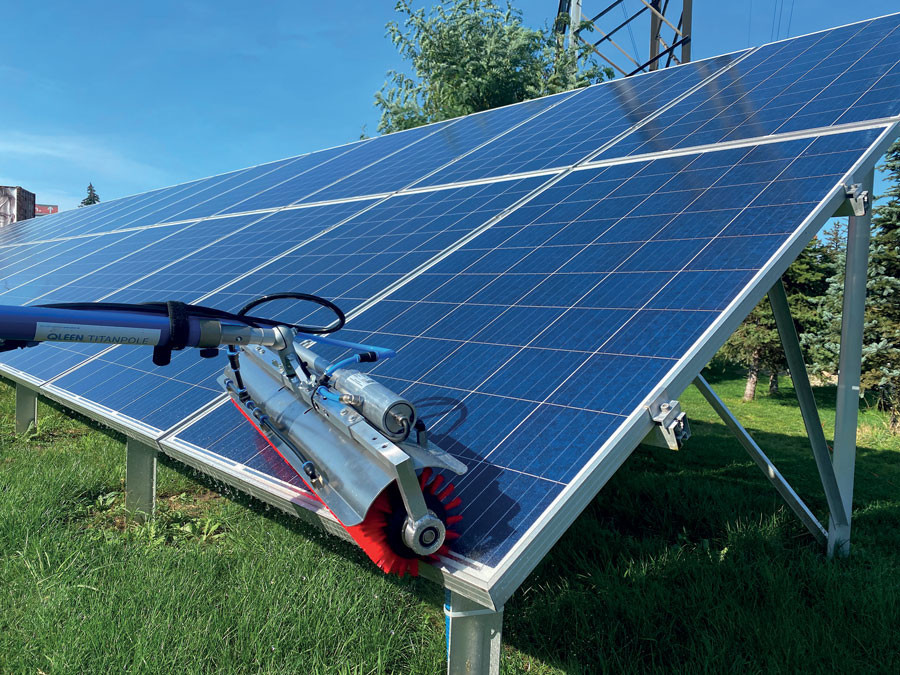
Solar panels in agricultural areas: why do they require special maintenance?
Photovoltaics in Agriculture: A Growing Trend
Today, an increasing number of agricultural plots and buildings (farms, storage facilities, equestrian centers, etc.) are hosting photovoltaic power plants, often on a large scale. These installations enable farmers to generate additional income, reduce construction or renovation costs, and engage in an eco-friendly approach by producing clean, renewable energy. They also provide an opportunity to optimize or add value to land.
Various options are now available to farmers, depending on their profile:
- Full sale of the electricity produced,
- Collective self-consumption (production is shared between one or more geographically close consumers),
- Self-consumption with surplus sale.
We also distinguish between ground-mounted photovoltaic installations—built on land not used for agriculture or livestock—and agrivoltaics, which combines both activities and is strictly regulated by Decree No. 2023-1096 of November 27, 2023. The goal is to preserve the land’s agronomic potential and ensure compatibility with ongoing agricultural activity. Several subsidies and grants are available to support farmers in their photovoltaic installation projects.
Photovoltaic Solar Panels in Agricultural Areas
By nature, solar panels are installed outdoors and are thus exposed to the elements and weather conditions: falling leaves, pollen, rain, wind, storms, etc. In agricultural areas, they are also particularly exposed to bird droppings, dust from fields, nitrogen deposits caused by agricultural activity, and chemical sprays. The accumulation of debris and dirt can limit sunlight exposure, damage the panels, and reduce their productivity, as they convert solar radiation into electricity. Regular and thorough maintenance is therefore necessary to preserve the performance and longevity of the installations, avoid additional maintenance costs, and ensure a satisfactory return on investment.
How Often Should Solar Panels Be Cleaned in Agricultural Zones?
Typically, maintenance is required once or even twice a year. However, this may vary depending on several factors, such as the installation’s location and the season. For example, fallen leaves are more prevalent in autumn, while pollen peaks in the spring. Leaves, pollen, and other particles or deposits hinder the panels’ proper operation. It is therefore important to adapt the cleaning frequency based on the specific environmental conditions of your agricultural site. While soiling may be visible to the naked eye, an unexpected drop in energy output (especially during sunny periods) is also a warning sign not to ignore.
Who Is Responsible for Maintaining Solar Panels in Agricultural Settings?
Given the large size of most agricultural installations, professional cleaning services are generally recommended to properly clean solar panels. Hiring a professional reduces the risk of falls for untrained individuals—especially when the panels are installed at height—and ensures effective cleaning that restores the system’s performance. Various companies offer this service; they have the skills and equipment required. These may include photovoltaic system installers who also handle long-term maintenance, or companies specialized in cleaning outdoor surfaces (terraces, pergolas, eaves, cladding, etc.) that are equally qualified to intervene. In both cases, service contracts and cleaning schedules can be established.
What Is the Best Method to Clean Solar Panels on a Farm?
For efficient and equipment-friendly cleaning, we recommend using a telescopic cleaning pole made of carbon or titanium, connected to a water supply and fitted with a rotating brush specifically designed for solar panel maintenance. Pure water cleaning is becoming increasingly popular. Pure water is demineralized through filtration and contains no chemicals or impurities. Combined with the mechanical action of a quality brush, it provides spotless results without the need for additional cleaning agents. Its composition prevents limescale buildup and avoids white streaks during drying. Harsh chemical products should be avoided whenever possible.
There are also cleaning robots designed to cover large solar panel surfaces. These robots are ideal for very extensive installations, as they can clean large areas in a short time. However, they are less versatile and more complex to deploy than manual equipment. On the other hand, a cleaning service equipped with a rotating brush can not only clean your photovoltaic system but also handle the cleaning of building facades, windows, or pergolas—other structures that also require maintenance. It may be cost-effective to hire a professional to carry out a complete cleaning of your solar system and buildings in one visit.
Finally, since the performance of a solar power plant is strongly linked to its maintenance, it is essential to choose a trusted service provider that uses equipment brands with proven reliability and expertise. Qleen by Guialto guarantees efficient, easy-to-use products for impeccable results and total satisfaction.
Don’t hesitate to contact our team—we’ll be happy to advise you on the equipment best suited to your needs.

 Français
Français
 English
English
